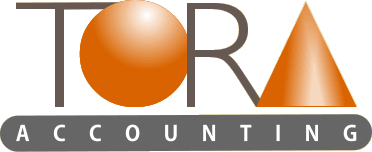Be in the know: what is corporate inversion or tax inversion?
/What is corporate inversion or tax inversion?
Corporate inversion or tax inversion, in a plain definition, is the process where a small foreign registered and established business entity "buys" a big American registered business entity. The goal of such transactions by American business entities, is to move their tax residency to another country with lower corporate tax rate.
At the completion of corporate inversion transactions, shareholders of the US based business entity, usually become the shareholders of the newly formed foreign parent company. The operational structure or location usually does not change in an inversion.
Tax inversion is legal which makes a very important difference when compared with corporate tax evasion which is illegal. Tax evasion is not paying taxes through illegal means, for example, intentionally underreporting ones income on a tax return. Tax inversion is a business decision made in an attempt to legally maximize ROI
Let us take a look at the following example in order for us to have better understanding as to why a US-registered business entity would choose to re-incorporate in a foreign land.
Company A: American business entity taxed at the rate of 35%
Company B: Ireland-registered business entity taxed at the local tax of 12.5%
Entity A and B both sell the same product. They are both located and operated in the US. They both made $1,000,000 in profit. Because corporation B is registered in Ireland, it would only pay $1,000,000 x 12.5%= $125,000 in its corporate tax. While corporation A that is registered in the US would pay $1,000,000 x 35% = $350,000. In some cases, the US based and registered corporation might also have to pay corporate tax to other countries in which they operate - a kind of double taxation.
The fact that tax inversion is legal makes one then ask, what is all the brouhaha over corporations doing it about?
The related brouhaha is coming from the view of some that the practice is unpatriotic - avoiding paying ones share of our tax bills by taking advantage of the law that allows it. Some feel that it gives the super-rich - who are mostly the ones taking advantage of the practice - an unfair advantage over the rest of us. I say, however, that this complicated financial maneuverings is putting more money in investors’ pocket and reasonable because it is allowed by the law.
| Corporate tax rates in selected countries: | ||||||
| Location: | 2009 | 2010 | 2011 | 2012 | 2013 | 2014 |
| Belgium | 33.99 | 33.99 | 33.99 | 33.99 | 33.99 | 33.99 |
| France | 33.33 | 33.33 | 33.33 | 33.33 | 33.33 | 33.33 |
| Italy | 31.4 | 31.4 | 31.4 | 31.4 | 31.4 | 31.4 |
| Japan | 40.69 | 40.69 | 40.69 | 38.01 | 38.01 | 35.64 |
| U.A.E. | 55 | 55 | 55 | 55 | 55 | 55 |
| United States | 35 | 35 | 35 | 35 | 35 | 35 |
| 6 countries with lowest corporate tax rate: | ||||||
| Bahamas | 0 | 0 | 0 | 0 | 0 | 0 |
| Bahrain | 0 | 0 | 0 | 0 | 0 | 0 |
| Bermuda | 0 | 0 | 0 | 0 | 0 | 0 |
| Cayman Islands | 0 | 0 | 0 | 0 | 0 | 0 |
| Cyprus | 10 | 10 | 10 | 10 | 12.5 | 12.5 |
| Ireland | 12.5 | 12.5 | 12.5 | 12.5 | 12.5 | 12.5 |
| Average tax rates: | ||||||
| Africa | 28.75 | 28.38 | 28.55 | 29.02 | 28.29 | 27.85 |
| Americas | 28.28 | 29.28 | 28.67 | 28.35 | 27.62 | 29.97 |
| Asia | 25.73 | 23.96 | 23.1 | 22.89 | 22.05 | 21.91 |
| Europe | 21.64 | 21.46 | 20.81 | 20.42 | 20.6 | 19.68 |
| Oceania | 29.2 | 29 | 28.6 | 28.6 | 27 | 27 |
| North America | 36.5 | 35.5 | 34 | 33 | 33 | 33.25 |
| Latin America | 27.96 | 27.52 | 28.83 | 28.3 | 27.96 | 27.15 |
| EU | 23.11 | 22.93 | 22.7 | 22.51 | 22.75 | 21.34 |
| OECD | 25.64 | 25.7 | 25.4 | 25.15 | 25.32 | 24.11 |
| Global | 25.38 | 24.69 | 24.5 | 24.4 | 23.71 | 23.57 |
For more information on tax inversion or corporate inversion, visit the www.IRS.gov website or contact a tax attorney.
Tajudeen Raji, President
TORA Accounting
Web site: www.toraaccounting.com

